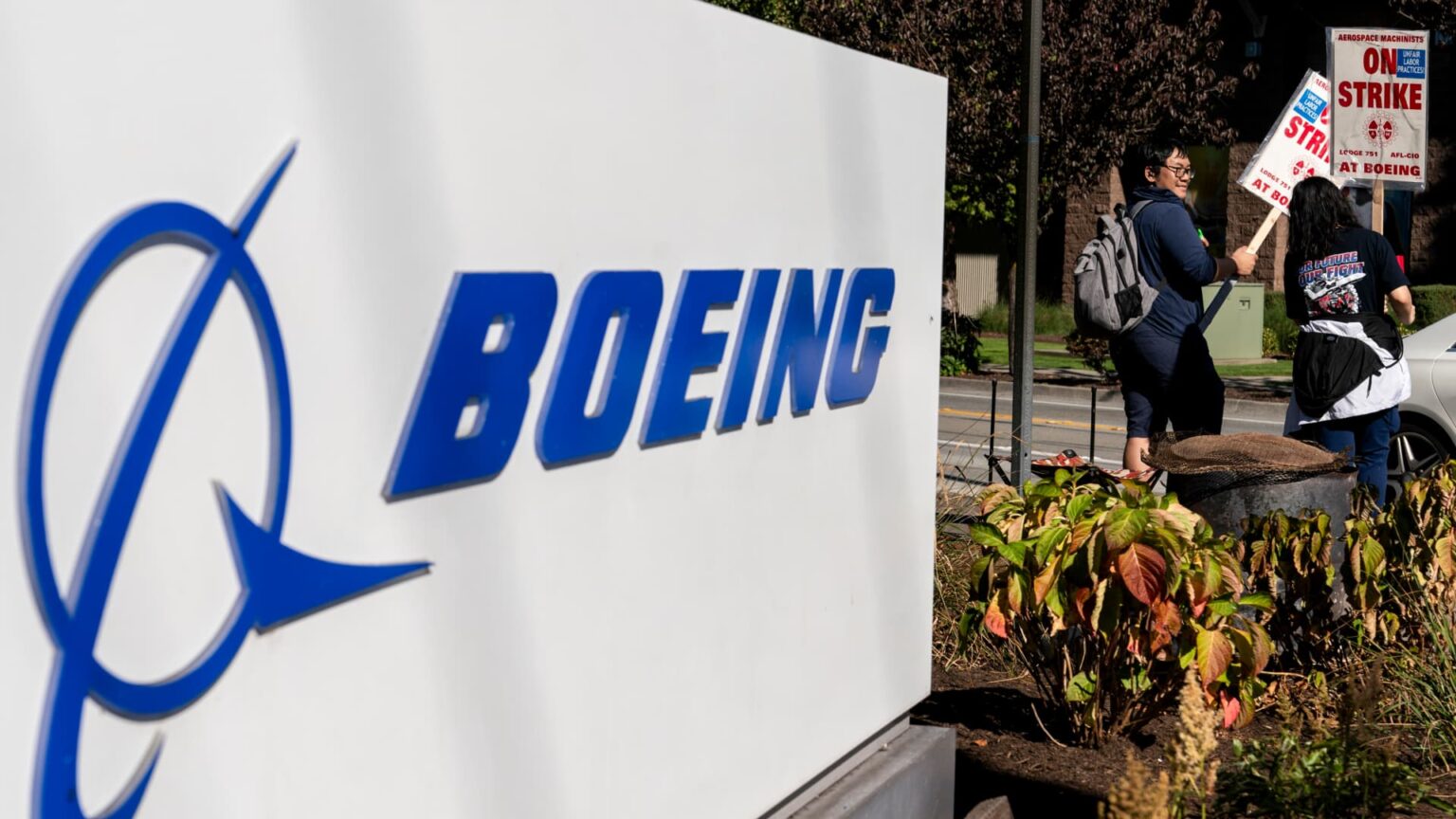Workers picket outside the Boeing Co. manufacturing facility during a strike in Renton, Washington, US, on Thursday, Oct. 3, 2024.
David Ryder | Bloomberg | Getty Images
Boeing‘s new CEO Kelly Ortberg said the company needs to become leaner and improve quality, a vision he laid out for the troubled plane manufacturer ahead of his first quarterly call with analysts on Wednesday. At the same time, thousands of striking Boeing machinists will vote on a new labor contract, and Ortberg said he was hopeful for a deal.
Boeing reported a more than $6 billion loss for the third quarter, its largest since 2020 when the pandemic halted most aircraft demand and its best-selling airplane was grounded after two crashes.
Boeing had released preliminary third-quarter results earlier this month, showing revenue of $17.8 billion, down less than 2% from a year earlier, as well as a loss of $9.97 a share and an operating cash outflow of $1.3 billion. It disclosed charges of more than $5 billion across its commercial and defense units and said it ended the third quarter with $10.5 billion in cash and marketable securities.
Its commercial airplane unit’s losses swelled to more than $4 billion from a $678 million loss a year before. The charges were related to the additional delay of the debut of its 777X wide-body aircraft to 2026 and another delay tied to the 767. Boeing plans to end production of the 767 when orders are fulfilled in 2027.
Its defense unit lost $2.4 billion in the third quarter from $924 million in the same period of 2023, with charges tied to several programs, including the KC-46 tanker and the troubled Starliner. The Starliner capsule returned empty from the International Space Station this summer, without the two NASA astronauts it originally carried to space.
Here’s what the company reported versus what Wall Street analysts surveyed by LSEG, formerly known as Refinitiv, expected:
- Loss per share: $10.44 adjusted. That may not compare with an adjusted loss of $10.52 expected by LSEG.
- Revenue: $17.84 billion vs $17.82 billion expected
Ortberg, a former CEO of Rockwell Collins, took the helm of Boeing in August, tasked with restoring the company’s reputation and stamping out quality problems on aircraft and in other programs. In January, a door plug blew out minutes into an Alaska Airlines flight on a 737 Max 9 after key bolts weren’t reinstalled before the plane left Boeing’s factory. The near-catastrophe reignited safety concerns from regulators and customers.
“We need to know what’s going on, not only with our products, but with our people,” Ortberg said Wednesday. “And most importantly, we need to prevent the festering of issues and work better together to identify, fix, and understand root cause.”
Ortberg acknowledged that it will take some time to turn the ship.
“We have employees who are thirsty to get back to the iconic company they know, setting the standards for the products that we deliver,” he said.
Ortberg earlier this month said Boeing will slash 10% of its global workforce of about 170,000 people, hinting at a slimmer manufacturer. He is expected to face questions on the call about which units or projects the company will consider shedding.
“We need to reset priorities and create a leaner, more focused organization,” he said in his prepared remarks.
The most pressing issue for Boeing this week is ending a costly labor strike that has hobbled its factories in the Seattle area, where most of its aircraft are produced. More than 32,000 machinists walked off the job early Sept. 13, about two weeks before the quarter ended, after overwhelmingly voting down a contract that included 25% raises, among other changes. A new proposal, unveiled Saturday, included 35% raises over four years, a higher signing bonus and 401(k) contributions, and other improvements.
The strike costs Boeing $1 billion a month, according to S&P Global Ratings, and getting to a speedy conclusion is crucial for the fragile aerospace supply chain, where furloughs are already beginning.
“We have been feverishly working to find a solution that works for the company and meets our employees’ needs,” Ortberg said.
The deal includes a commitment from Boeing to build its next aircraft in the Pacific Northwest. That has been a sore spot for unionized machinists after Boeing moved its 787 Dreamliner production to a non-union facility in South Carolina.
“Boeing is an airplane company and at the right time in the future we need to develop a new airplane. But we have a lot of work to do before then,” Ortberg said Wednesday.
Analysts are optimistic that the deal will pass. Results of the labor vote are expected late Wednesday night.


